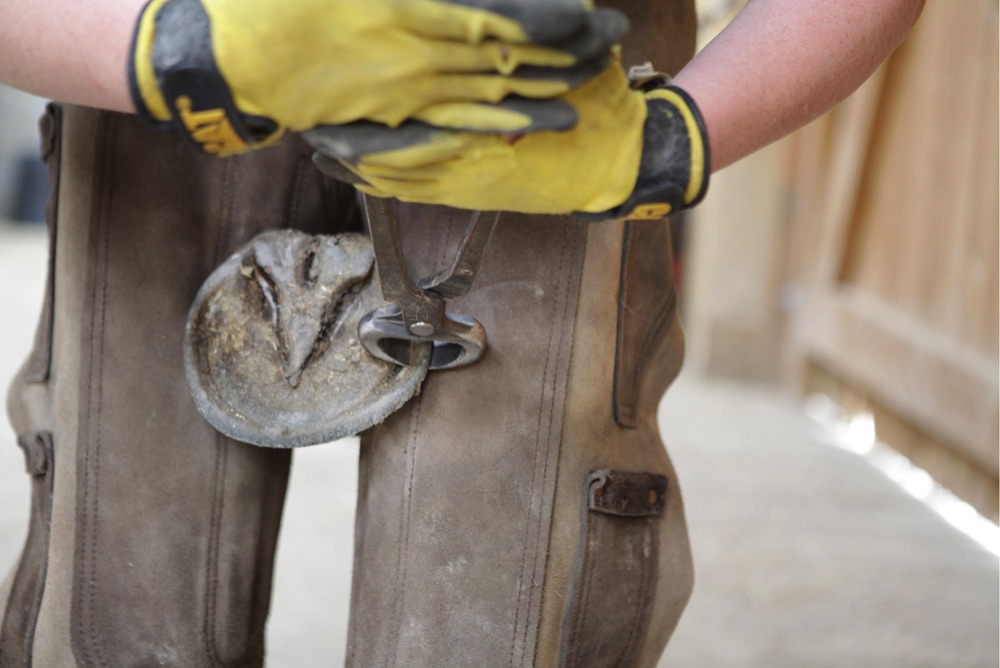
Frequently asked Questions

Contact info
07789 404055
Lauren Hetherington copyright 2016
Barefoot FAQ's
Can all horses go barefoot?
This is the million dollar question! Barefoot is about the whole horse so it is not a simple question to answer either. From our experience of working with and rehabilitating horses, we have not yet met one that hasn't been able to go barefoot with all the correct support and management in place. There are however, lots of potential pitfalls so to be truly barefoot may take some adjustment and changes in lifestyle.
My horse was sore when I removed shoes, why?
When the hoof is compromised, this often results in pain which you see as your horse being foot sore. Sometimes it is the result of current inflammation (from laminitis, wormers, vaccinations or medications), sometimes it is bruising, your horse's sole may be thin and feeling everything under its feet, it may simply have been trimmed incorrectly. Often underlying abscesses, thrush infection, or metabolic illness will manifest as soreness in the hoof.
What is most important is that you recognise that there is a cause for the soreness and understand that there are many things you can do to rectify the issue. Shoes will often cover up these symptoms by way of removing the majority of the hoof's contact with the ground so although you think your horse isn't sore with shoes, it still is, but you are masking the symptoms of the issues described above.
I've been told my horse needs shoes to work, is that true?
If you help your horse to strengthen its hooves properly and provide the dietary support then there is no reason your horse can't work or compete barefoot.
Will my horse's hooves wear down too quickly or chip when barefoot?
Initially, when you remove shoes you may notice more chips as the hoof starts to self-trim to a certain degree. With the support of the correct diet, this is likely to be minimal and not a long lasting symptom of being barefoot.
Many people are scared that their horse's hooves will wear quicker than they grow. This is a matter of transitioning and building up to the work that is desired of the horse. Just as you wouldn't expect to be able to run a marathon without training, you should not expect your horse's hooves to suddenly be conditioned to go long distances over hard ground. Build up work gradually on the surfaces you are likely to spend the majority of your time on and your horse (with the correct diet and management) will develop hooves suited to those terrains.
How often will my horse's hooves need to be trimmed?
This is very dependent on how your horse lives, how much work it does and to an extent, its confirmation. Some will self-trim very effectively and need minimal input from the trimmer. Others may have an imbalance or general growth that requires more regular attention. This is something that will be addressed on an individual basis. Some may be as little as every 2-3 weeks and others may only need work every 6 months. (Have a look at the Graveney Equine blog on the importance of timely hoof care.)
Why use hoof boots instead of shoes?
This is a very sensible question, one that I have been asked many times.
A hoof boot if fitted and used correctly, should outlast a shoe many times over. So, the initial outlay for boots is soon paid for by not paying for your horse to be shod every 4-6 weeks.
A boot also allows the hoof to yield, distort and adapt on all planes to accommodate the terrain it is working on whilst providing cushioned protection between that surface and the hoof. This means that the hoof is being stimulated in all the ways that are normal and natural but they have a more muted effect until the hoof is functioning at full health.
By being temporary, you can remove boots when your horse is on any surface that it doesn't find challenging. You should find that you need them less and less as the hoof capsule rehabilitates but if you need them, they are to hand and you don't need to wait for someone to come back to fit them.


